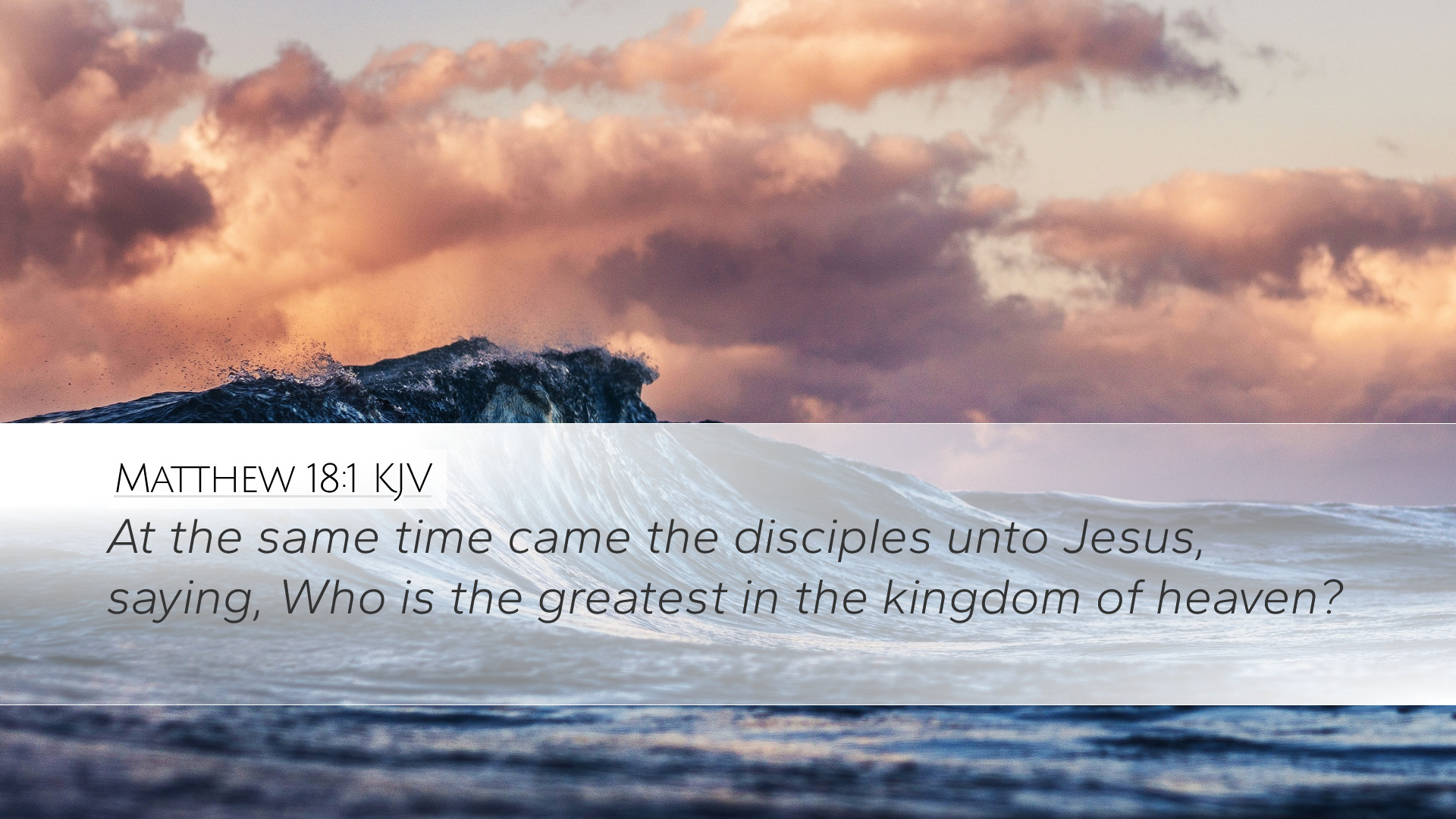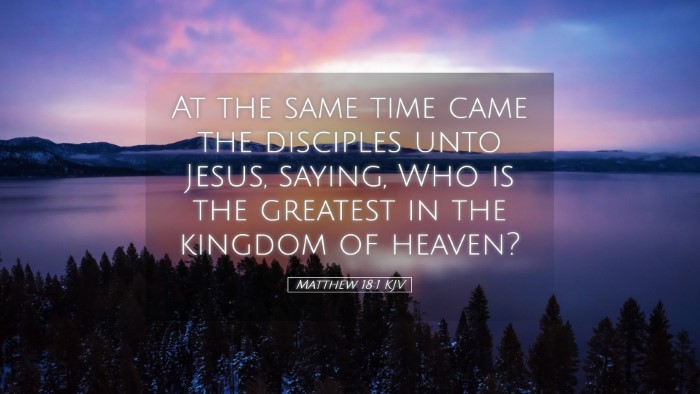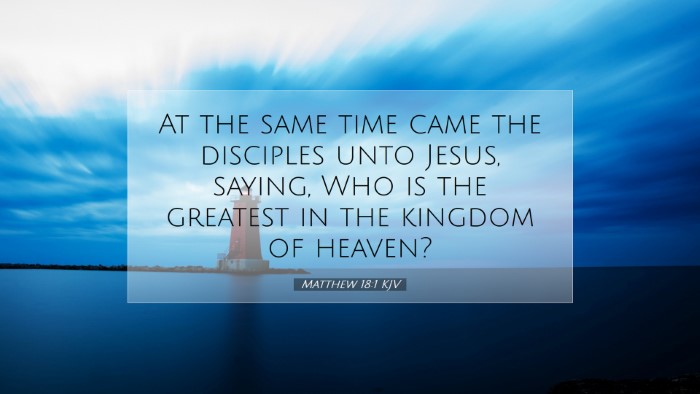Commentary on Matthew 18:1
Matthew 18:1 captures a significant moment in the teachings of Christ, where the disciples come to Jesus to inquire about greatness in the kingdom of heaven. This verse opens a deep discussion regarding humility, the nature of spiritual authority, and what it means to be a part of God's kingdom.
Text of Matthew 18:1
“At that time the disciples came to Jesus, saying, Who is the greatest in the kingdom of heaven?”
Contextual Analysis
The context of this verse is pivotal for understanding its implications. It follows the events where Jesus has prophesied his death and resurrection, and the disciples, still struggling with the concept of Jesus’ upcoming suffering, are engaged in a debate about their own status in the kingdom.
- Discipleship and Ambition: The question posed by the disciples reflects a common human concern with status and recognition. This question demonstrates not only their ambition but also their misunderstanding of the nature of the kingdom of God.
- Jesus’ Teaching Style: Jesus often utilized questions to draw out deeper truths, and this interaction serves both as a teaching moment and a demonstration of His authority over spiritual matters.
Theological Insights
Several prominent theologians have offered insights into this verse that can guide pastors and students alike in spiritual reflection:
Matthew Henry
Henry emphasizes the general shame associated with the disciples' concern about greatness and asserts that they missed the point of Jesus’ recent teachings about humility and service.
- Humility Over Hierarchy: Henry posits that the very notion of greatness in God's kingdom is contrary to earthly notions of rank and recognition. He suggests that true greatness is marked by humility and selfless service.
- Kingdom Dynamics: He highlights how Christ’s kingdom operates on principles that often subvert worldly wisdom. The disciples are reminded that in God’s eyes, the last shall be first, a thematic element throughout Jesus’ teachings.
Albert Barnes
Barnes provides an exegetical approach, drawing connections between the disciples' question and the overall nature of God's kingdom.
- The Nature of Questions: Barnes notes that the disciples, confused by their cultural understanding of power and authority, were seeking reassurances of their status in a coming kingdom. This illustrates the human tendency to seek validation.
- Divine Criteria for Greatness: He points out that Jesus would soon redefine greatness, placing emphasis on the childlike qualities of humility, dependence, and trust—the true marks of a follower of Christ.
Adam Clarke
Clarke moves into a more pastoral evaluation, focusing on the implications of the question posed by the disciples.
- The Picture of Childlike Faith: Clarke argues that the inquiry into greatness stems from a flawed understanding of leadership and influence. He views Jesus' forthcoming response—bringing a child to illustrate His point—as a challenge to pride and a call to embrace simplicity in faith.
- Challenge to Authority: He suggests that the misunderstanding of authority and greatness is foundational for much of the division and discord found in the church, thus calling current leaders to reflect on their own understanding and practice of spiritual leadership.
Application for Today
For pastors, students, and theologians, this verse serves as a reminder to redefine greatness in accordance with the teachings of Christ. It presents multiple avenues for application, as outlined below:
- Redefining Leadership: Christian leadership must reflect the servant heart of Christ. Those in positions of authority should prioritize service and humility over power and recognition.
- Fostering a Culture of Humility: Churches and communities should cultivate environments where humility is prized and recognized as an essential quality of a disciple.
- Emphasizing Childlike Faith: Engage with the qualities depicted in children—trust, receptivity, and humility—which are crucial for entering the kingdom of heaven.
- Encouraging Questions: Leaders should invite questions that seek deeper understanding of faith, rather than merely providing answers that reinforce traditional hierarchies.
Conclusion
Matthew 18:1 is not just a question of status; it is a profound invitation to examine the heart of what it means to be part of God's kingdom. The insights from Henry, Barnes, and Clarke collectively urge readers to embrace humility, question their own motives, and embody a faith that reflects the character of Christ through service and love.


